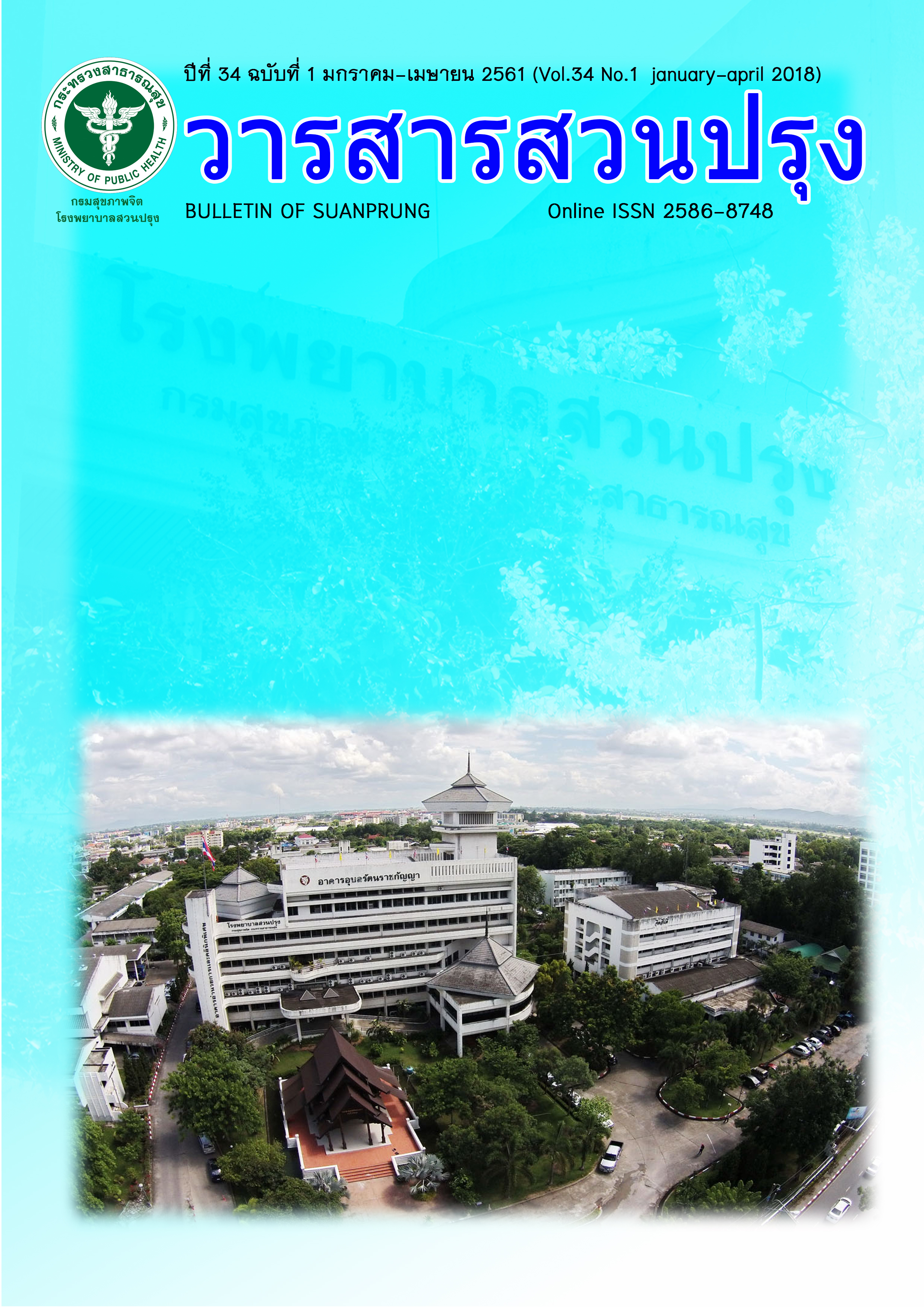The Development of the Program for Self-esteem Promotion and Negative Automatic Thoughts Reduction in Eldery with Depression
Main Article Content
Abstract
The purpose of this study was to develop and evaluate the effectiveness of the program to promote self-esteem and to reduce the negative automatic thoughts in eldery with depression. The participants consisted of 40 eldery with depression. Research instruments included a guideline for focus group, in-depth interview guideline, the Rosenberg Self - Esteem Scale, and the Negative Automatic Thoughs Questionnaire. There were 5 phases in this study: 1) identifying problems and needs, 2) developing the programs , 3) trying out and evaluating the programs, 4) revising the programs and 5) evaluating the effectiveness of the programs. Content analysis, percentage, mean, chi-square test, and t-test were used for data analysis. Major findings were the followings:
1) The programs consisted of 6 phases of interventions: 1) Relationship enhancement phase, 2) Day past diversion phase, 3) Walfare in mind phase, 4) How to care for their own pleasure phase, 5)Tree of success and Hoping to reach far phase, and 6) Pledges peer phase. The item objective congruence (IOC) coefficient was .77.
2) For the effectiveness, it was found that the self-esteem in the samples was more rising after the first month program than those who attended the usual care, at significant level of .05. While the negative automatic thoughts were found to be lower than the group with usual care with significantly statistical difference (p.05) and satisfaction of nurses for using the program was in a very good level (= 3.56 , SD = 0.189)
The results of the study reflected that this programmed could enhance self-esteem and reduce the negative automatic thoughts in eldery with depression. And the program will be used to develop the quality of the health system in this issues.Article Details
บทความหลังผ่านการปรับแก้จากกองบรรณาธิการแล้ว เป็นลิขสิทธ์ของวารสารจิตเวชวิทยาสาร โรงพยาบาลสวนปรุง กรมสุขภาพจิต กระทรวงสาธารณสุข ห้ามเผยแพร่เพื่อประโยชน์ทางการค้าโดยไม่ได้รับอนุญาต แต่อนุญาตให้เผยแพร่บทความดังกล่าวเพื่อประโยชน์ทางการศึกษาแก่ประชาชนทั่วไป ทั้งนี้กองบรรณาธิการไม่จำเป็นต้องเห็นด้วยกับบทความหรือข้อคิดเห็นใดๆ ที่ปรากฏในวารสารสวนปรุง

